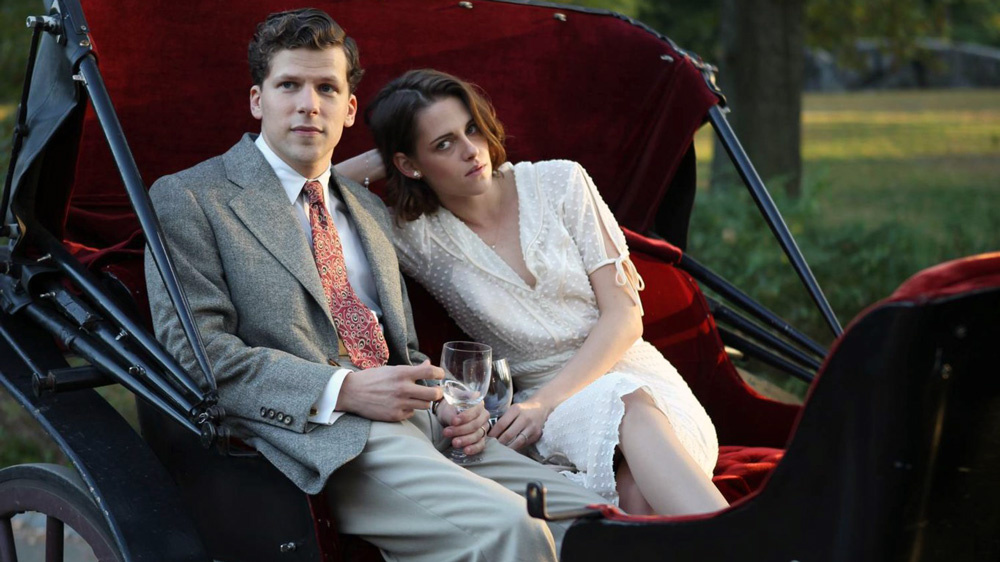
Woody Allen’s latest writing/directing effort, Café Society, is a lighthearted romantic comedy/drama set against the backdrop of 1930’s Hollywood. Jesse Eisenberg (in the Woody Allen role) is Bobby, a young Jewish man from New York who decides to shun his family business and take a crack at a career in Hollywood. Once in L.A., seeks assistance from his successful Hollywood talent agent uncle Phil (Steve Carell), through whom he meets and falls for Vonnie (Kristen Stewart), Phil’s down to Earth secretary. Café Society paints a romanticized, albeit critical, portrait of 1930’s Hollywood, which I think Allen handles really well. Despite the star power, the film had a relatively low budget, but Allen manages to still create a very convincing period piece, utilizing only a few different filming locations (though the modern day L.A. skyline is briefly seen in a shot). The exploration of Hollywood, particularly of Hollywood in that era, is great, although I believe the subject was better handled by the Coen Brothers’ far superior Hail Caesar!.
The film starts off strong, with smart and funny dialogue, and a great pace aided by a fantastic jazzy score. One scene early in the film involving Bobby’s encounter with an inexperienced call girl is classic Woody Allen, and ranks amongst his best work. Unfortunately, as the film progresses, it begins to slowly putter out. The pacing slows considerably, and although the dialogue remains very true and honest, it becomes less entertaining. The lighthearted relationship storyline between Bobby and Vonnie starts out strong, but by the end of the film, I found myself not really caring anything about it. While a secondary storyline about Bobby’s gangster older brother that is relatively insignificant at the start develops into something much bigger, it is not handled with the gravity it deserves. Gangster films, it appears, are not in Allen’s wheelhouse.
There are some particularly nice performances here, particularly from Carell and Stewart, but I found Jeannie Berlin’s portrayal of the overly concerned Jewish mother to be a bit insincere. I never felt that she wasn’t acting. Given the right performance, I think the role could have been the emotional lynch pin of the film, but instead we’re left with a caricature of a Jewish mother whose feelings I never quite believed. Eisenberg’s Bobby is incredibly likable at the start of the film, but his character arc has him transforming from Eisenberg’s Woody allen into Eisenberg’s Mark Zuckerberg,which is unfortunate.
I hate to say it, but I think the biggest misstep with this film is Allen’s narration. Narration is rarely necessary (provided you have a strong enough script), but even when it serves its purpose here, Allen sounds as if he is reading a story, rather than telling one. I believe another actor narrating would have served this film better.
Café Society isn’t a bad film. In fact, it starts off as a pretty good one. I found myself pleasantly entertained for about half the film, but by the third act, I found myself checking the time. If you’re a die hard Woody Allen fan, you’re going to see this film regardless (and you should), but if you’re on the fence, I would recommend waiting for a home release.

